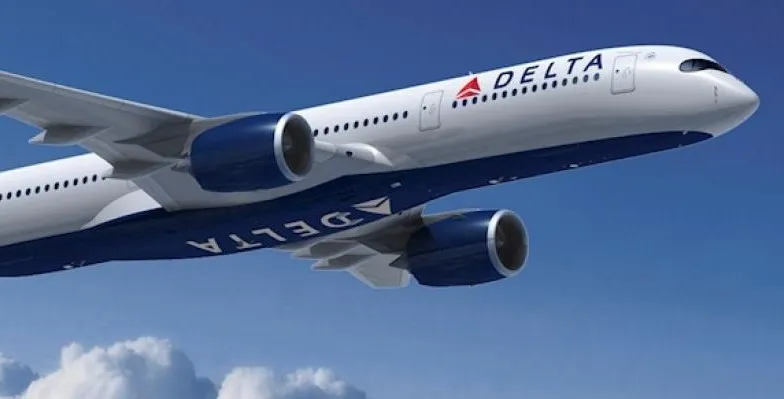
Delta looks to power planes using forest debris
Sep 17, 2019

Delta Air Lines is exploring innovative ways to power its aircraft by utilizing forest debris as a sustainable fuel source. This initiative aims to reduce the airline's carbon footprint and promote environmental stewardship. By converting wood waste from forests into biofuels, Delta plans to tap into renewable resources while addressing the challenges of climate change. The project aligns with the airline's broader commitment to reaching net-zero emissions by 2030. Through partnerships with biofuel producers and forest management organizations, Delta is taking significant steps towards a greener aviation industry, ultimately benefiting both the planet and its operations.
Delta’s Innovative Approach to Sustainable Aviation
Delta Air Lines is taking significant steps towards sustainability by exploring alternative energy sources for its fleet. One of the most promising initiatives involves using forest debris as a potential fuel source. This innovative approach not only aims to reduce the airline's carbon footprint but also supports the ongoing efforts to combat climate change.
The Role of Forest Debris in Sustainable Aviation Fuel
Forest debris, which includes branches, leaves, and other organic materials, can be converted into biofuel through various processes. This biofuel can serve as a renewable energy source for aircraft, helping Delta meet its sustainability goals. By utilizing forest debris, Delta is tapping into an abundant resource that would otherwise contribute to waste and environmental degradation.
Benefits of Using Forest Debris
There are numerous benefits associated with using forest debris for aviation fuel. Some key advantages include:
- Reduction of Greenhouse Gas Emissions: Biofuels made from forest debris can produce significantly lower emissions compared to traditional fossil fuels.
- Waste Management: Utilizing forest debris addresses waste management issues by converting what would be waste into valuable resources.
- Support for Local Economies: Harvesting forest debris can create jobs and stimulate local economies, particularly in rural areas.
- Renewable Resource: Forest debris is a renewable resource, making it a sustainable option for long-term fuel needs.
Delta’s Commitment to Sustainability
Delta has committed to achieving net-zero emissions by 2050. This ambitious goal aligns with global efforts to reduce carbon footprints across industries. By investing in research and development of biofuels, Delta aims to lead the aviation sector toward more sustainable practices. The airline's focus on forest debris as a fuel source is just one aspect of a broader strategy to incorporate sustainable practices into its operations.
Challenges and Considerations
While the prospect of using forest debris as aviation fuel is exciting, several challenges must be addressed:
| Challenge | Description |
|---|---|
| Supply Chain Logistics | Establishing a reliable supply chain for sourcing and processing forest debris can be complex. |
| Economic Viability | The cost of producing biofuel from forest debris must be competitive with traditional jet fuels. |
| Regulatory Approval | Biofuels must meet stringent regulations and safety standards for aviation use. |
Collaborations and Partnerships
To accelerate the development of forest debris as a fuel source, Delta is actively seeking partnerships with environmental organizations, research institutions, and biofuel producers. Collaborating with experts in the field will help Delta navigate the challenges of biofuel production and ensure the sustainability of its initiatives.
Future Outlook
As Delta continues to explore innovative ways to power its aircraft sustainably, the use of forest debris represents a promising avenue for reducing the airline's environmental impact. With ongoing research and investment, Delta aims to make significant strides towards a greener future for aviation.
Conclusion
Delta Air Lines is at the forefront of sustainable aviation, exploring the potential of forest debris as an alternative fuel source. By prioritizing innovation and sustainability, Delta is not only working towards its net-zero emissions target but also contributing to a more sustainable future for the aviation industry. As the airline navigates the challenges and opportunities of this initiative, its commitment to environmental responsibility remains unwavering.
```Related Articles

Explore Thailand: The Best Islands to Visit for Paradise, Adventure, and Relaxation

The Ultimate Guide to the Best Islands in Thailand for Your Next Getaway

Do babies need passports? How to get a passport for a newborn

How to get a U.S. passport fast: here’s how to expedite the process

What is Mobile Passport Control: 5 reasons why you should use it

SENTRI vs. Global Entry: A detailed guide

Do you need a passport to go to the Bahamas? Let’s find out

Do you need a passport to go to Mexico? A detailed guide

Do you need a passport to go to Canada? We got the answer

Do You Need a Passport for a Cruise: An Essential Travel Guide

Booster Seat Requirements: All the Rules to Follow in Your Rental Car

What Are the World’s Most Powerful Passports, and How Does Yours Rank?

How to Take a Passport Photo at Home: A Helpful Guide

You've got to have heart! Southwest's new livery

Your opinion: Should water be free on low cost carriers?

Young women bolder than guys as solo travellers
